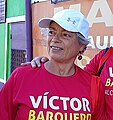You can help expand this article with text translated from the corresponding article in Spanish. (February 2020) Click [show] for important translation instructions.
|
| |||||||||||||||||||||||||||||||||||||||||||||||||||||||||||||||||||||||||||||||||||||||||||||||||
82 mayors, 505 aldermen, 480 syndics, 1888 district councillors, 8 intendants, 32 municipal district councillors and their alternates[1] | |||||||||||||||||||||||||||||||||||||||||||||||||||||||||||||||||||||||||||||||||||||||||||||||||
|---|---|---|---|---|---|---|---|---|---|---|---|---|---|---|---|---|---|---|---|---|---|---|---|---|---|---|---|---|---|---|---|---|---|---|---|---|---|---|---|---|---|---|---|---|---|---|---|---|---|---|---|---|---|---|---|---|---|---|---|---|---|---|---|---|---|---|---|---|---|---|---|---|---|---|---|---|---|---|---|---|---|---|---|---|---|---|---|---|---|---|---|---|---|---|---|---|---|
| |||||||||||||||||||||||||||||||||||||||||||||||||||||||||||||||||||||||||||||||||||||||||||||||||
Municipal elections were held in Costa Rica on Sunday, February 2, 2020, to elect all municipal offices in the country: mayors, aldermen, syndics (district council presidents), district councilors and the intendants of eight special autonomous districts, together with their respective alternates in all cases (see local government in Costa Rica). These will be the fifth direct municipal elections since the amendment to the 1998 Municipal Code and the second to be held mid-term since the 2009 reform.
In the newly founded canton of Río Cuarto, the election of mayor and members of the City Council was held for the first time.[2]
As in previous elections the three main parties in number of mayors were the National Liberation Party (PLN) with 42 (losing 8 mayors including the provincial capitals of Cartago and Liberia from the previous elections in 2016), Social Christian Unity (PUSC) with 15, winning one extra mayor, and the Citizens' Action Party (PAC) with 4 (five if Montes de Oca's PAC-lead ruling coalition is counted), losing 2 from the prior reelection.[3] The New Generation Party won one more mayor making a total of 4, despite not having parliamentary representation, and Social Christian Republican Party (a splinter from PUSC) won one extra mayor making a total of 2.[3] The newly founded liberal party United We Can founded by former Libertarian deputy Natalia Diaz won the mayoralty of Oreamuno and had important support in several cantons, whilst Cartago was won by former deputy and presidential nominee Mario Redondo Poveda from Christian Democratic Alliance.[3] The left-wing Broad Front lost its only mayor in Barva canton against the aforementioned PRSC.[4]
This election also saw an increase in support of local parties. We Are Moravia won in Moravia, United Communal in Turrubares, Palmares First in Palmares, Sarchí Alliance in Sarchí, Santo Domingo Advance Movement in Santo Domingo, The Great Nicoya in Nicoya, Authentic Santacrucian in Santa Cruz, Nandayure Progresses in Nandayure, Authenthic Limonense in Limón and Recovering Values in Pococí won the mayoralties of their cantons, and the already locally dominant 21st Century Curridabat was re-elected in Curridabat.[4] Nine cantonal parties and one provincial party reached mayoralties for the first time.[5]
The two main evangelical parties, National Restoration and the New Republic Party, didn't win any mayors, which was noticed by the media and described as a political failure due to their larger totals in the previous general election.[6][7][8] Led by Fabricio Alvarado under the National Restoration banner, for the first time an Evangelical Christian party was one of the main voted ones in Costa Rica and went into the run-off against ruling PAC, reaching up to 800.000 votes despite losing the election. Alvarado quit National Restoration and founded New Republic party soon after but its results in the election were testimonial.[6]
- ^ Tribunal Supremo de Elecciones. "Elecciones municipales en cifras 2002-2016" (PDF). tse.go.cr. Retrieved 22 March 2019.
- ^ Traube, Irene (20 May 2017). "Firma de ley ratifica a Río Cuarto de Alajuela como cantón". La Nación. Retrieved 28 June 2019.
- ^ a b c González, Rodolfo (3 February 2020). "Liberación Nacional saca holgada ventaja en elecciones municipales". Teletica. Retrieved 3 February 2020.
- ^ a b "Resultados". TSE.go.cr. Retrieved 3 February 2020.
- ^ Ruiz, Paula (3 February 2020). "Éxito electoral de partidos locales refleja deterioro de agrupaciones nacionales en comunidades". Observador. Retrieved 3 February 2020.
- ^ a b Debrús, Geovanny (2 February 2020). "El gran perdedor: los datos son terribles para el Partido Nueva República de Fabricio Alvarado". Cultura.CR. Retrieved 3 February 2020.
- ^ Fallas M., Gustavo (2 February 2020). "Fracaso total para Nueva República y Restauración en lucha por alcaldías". Amelia Rueda. Retrieved 3 February 2020.
- ^ Umaña, Paula (2 February 2020). "Nueva República y Restauración Nacional se van en blanco en elecciones municipales". Observador. Retrieved 3 February 2020.





